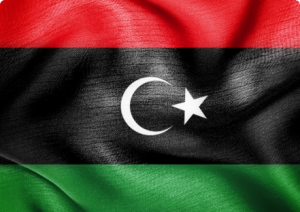Businesses of all kinds should be looking at the potential of Libya and considering whether and how to enter the market.
A large part of that decision will be based on how business-friendly the laws of Libya are and how much protection investors can expect.
The legal system of Libya is reasonably well developed and includes detailed laws that are, for commercial and financial matters, largely derived from the French and Egyptian civil codes. Sharia is very rarely invoked in commercial matters, but does prohibit gambling and alcohol.
But that looks likely to change: in the liberation speech by the National Transitional Council (NTC) following the death of Muammar Qadaffi, the return to Sharia was stressed using some examples such as polygamy and the ban on conventional financing, which surprised people both in Libya and internationally.
The speech, however, does not have any effect on current laws of Libya and it is likely any such changes will be left to the elected government rather than the interim, unelected government. In any event, the application of Sharia on commercial dealings is nothing to fear.
Much has been made of the fact that the draft constitution circulated by the NTC refers to Sharia being the principal source of legislation. However, this is the case in many North African and Middle East countries and does not necessarily signal a radical shift in values.
The draft constitution, in the same article, also guarantees freedom of religion for non-Muslims and later states there shall be no discrimination based on, among other things, religion. The draft also makes several references to gender equality and, when read as a whole, signals a desire for Libya to be a peaceful country which nurtures growth, both of its people and of the country as a whole. It also points to a firm commitment to end corruption, and an aspiration for equality among its citizens.
It remains to be seen whether the reference to Sharia in the draft constitution and the liberation speech will result in changes to the commercial laws of Libya. Previously, the payment of interest was acceptable where the payment was between two companies.
Interest payments were prohibited only if such payments were between two individuals or if the amount exceeded what the parties had agreed. This can be contrasted with the laws of Saudi Arabia, where interest is wholly forbidden. In the liberation speech, reference was made to banning conventional financing and only allowing Islamic financing.
However, Islamic financing does not preclude a profit being made, it merely affects the structuring of a deal and therefore is simply a different route of getting to the same result.
The exclusion of liability may also be an area of law that could change if Sharia principles are applied strictly. They prohibit the exclusion of liability on the basis that a person is responsible for their actions. Previously in Libya, exclusion of liability arising from ordinary defaults could be excluded but liability for fraud or gross negligence could not be excluded. In a commercial context, if this proves to be a material issue for a particular deal, the governing law of the contract that the parties opt for may be something other than the laws of Libya. Therefore, again, this is not an insurmountable barrier for doing business in the new Libya.
The draft constitution also contains other principles that are encouraging to businesses, including the protection of real property. Previously, the ownership of real property, even by Libyan nationals, was restricted to land not exceeding 500 square metres and, under Qadaffi's rule, non-nationals were prohibited from owning property.
Prior to Qadaffi, land ownership was open to all nationalities without restriction on size or location . Therefore it is widely expected that in the coming years considerable evolution in the property market, an asset class strongly regarded in the Arab world, will occur.
Intellectual property has been protected in Libya for some time and such protection is reiterated in the draft constitution.
Under Libyan law, it is possible to apply for an interim order to stop alleged infringement of intellectual property rights pending a full determination of the complaint. It is also possible to apply for compensation in the civil courts or lodge a criminal complaint against the alleged violator. To determine a matter before the Libyan courts can take many years but, over time, this is expected to improve.
Under Qadaffi there were rules to ensure judicial impartiality, but these are likely to be more strictly enforced under the interim and elected government due to the renewed commitment to eradicating corruption.
Taking a more general view on the application of Sharia in Libya, of course this will mean the existing prohibition on alcohol would remain in place.
However, this has not dampened the enthusiasm of international hotel operators from rapidly expanding into Saudi Arabia and other countries where alcohol is prohibited, such as Kuwait. Therefore, it is unlikely to be a major deterrent to such companies expanding in Libya.
The indications of a greater adherence to Sharia in Libya should not instil fear into corporations interested in commercial opportunities in the new Libya.
(Source: The National)





